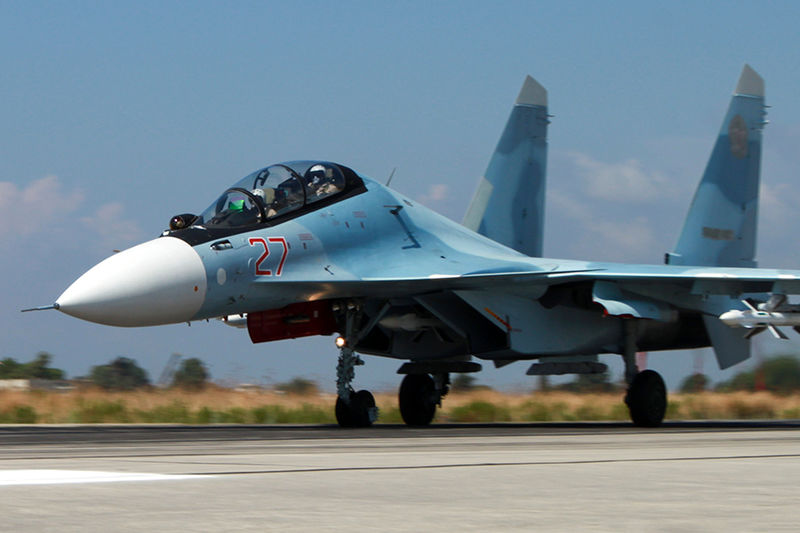A Russian Su-30 conducted a VID intercept on a U.S. aircraft over Syria.
On Oct. 10, a Russian Su-30SM belonging to the contingent deployed to Latakia, in Syria, had a close encounter with a unspecified U.S. combat plane supporting Operation Inherent Resolve.
According to Russia’s Ministry of Defense, the Flanker-derivative 4++ Gen aircraft was providing air escort for a package of attack planes in Syria when it approached the American plane, to perform a VID (Visual Identification).
The intercept “was not aimed at scaring off the US aircraft.”
According to RT, the Su-30SM, operating in Aleppo province, “detected radiation emitted from an unidentified aircraft and approached it to identify the bogie [unidentified aircraft in interceptor’s lingo].”
So, the aircraft was at an estimated distance of 2-3 km, when it detected the American plane and closed on it, to visually identify the unknown traffic. After the VID, the Russian plane rejoined the other aircraft it was escorting and continued its mission.
Nothing special then, besides the fact that these close encounters are exploited to collect some intelligence about the counterpart’s weapons systems: radio frequencies, sensors emissions and all the stuff ISR (intelligence Surveillance Reconnaissance) platforms can collect from distance.
Su-30SMs have been pretty active with their still largely unknown Bars-R radar, possibly exposing its “signature” to the ESM (Electronic Support Measure) sensors of nearby aircraft: few days ago, a Russian Flanker locked-on a TuAF F-16 for more than 5 minutes!
As already reported, this is not the first time Russian and U.S. aircraft come close to one another in the increasingly crowded airspace over Syria. In a few such incidents, Russian warplanes tailed U.S. Predator drones, at least a couple of times American aircraft reportedly changed their routing to deconflict with Russian aircraft.
One of such events saw the involvement of U.S. F-16s from Incirlik, Turkey, and some RuAF Su-34s.
Image credit: Mil.ru
















